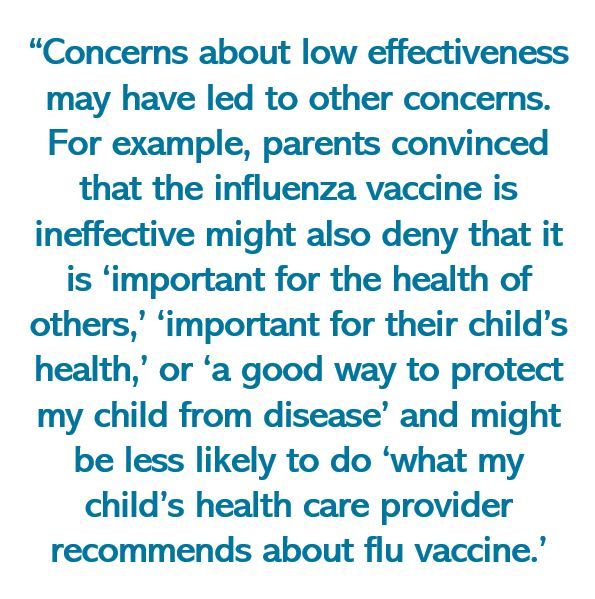- Clinical Technology
- Adult Immunization
- Hepatology
- Pediatric Immunization
- Screening
- Psychiatry
- Allergy
- Women's Health
- Cardiology
- Pediatrics
- Dermatology
- Endocrinology
- Pain Management
- Gastroenterology
- Infectious Disease
- Obesity Medicine
- Rheumatology
- Nephrology
- Neurology
- Pulmonology
Survey: More than One-quarter of Parents Hesitant to Vaccinate Children Against Flu
Parental doubts about efficacy drive flu-shot hesitancy, according to a new survey, and impact routine vaccination rates, as well.
Approximately one-quarter of US parents are hesitant about having a child receive influenza vaccine and 6.1% are hesitant about routine childhood vaccinations, according to results of a national study measuring parental attitudes toward vaccination.
“Our study provides the first national estimates of hesitancy about routine childhood and influenza vaccination among representative samples of US parents of children, using a scale specifically developed and validated to assess vaccine hesitancy internationally,” said the study’s lead author Allison Kempe, MD, MPH, professor of pediatrics at the University of Colorado School of Medicine and director of ACCORDS, in a University of Colorado Anschutz Medical Campus press release.
The study results were published online in the journal Pediatrics.
Impact on vaccine-preventable disease
The World Health Organization (WHO) in 2019 designated vaccine hesitancy as one of the 10 leading threats to global health. Hesitancy about routine childhood immunization in the US has contributed to lower vaccination rates and is blamed for recent outbreaks of vaccine-preventable diseases, including pertussis, measles, and mumps. Nor is vaccine hesitancy and its repercussions confined to the US.
The survey sampled 4445 parents with 2176 completing the survey (response rate 49%). Of these, 12% strongly agreed and27% somewhat agreed they had concerns over serious side effects of both routine childhood and influenza vaccines.
“The fact that one in eight parents are still concerned about vaccine safety for both childhood and influenza vaccinations is discouraging,” said Kempe, who practices at Children’s Hospital Colorado. “But what is driving the hesitancy about the influenza vaccine is primarily doubts about its effectiveness.”
Indeed, the survey found that 70% of parents strongly agreed that routine vaccinations were effective versus only 26% for the influenza vaccine.
While Kempe agrees that the annual flu vaccine is not 100% effective, she stresses that even in years when the match is poor between circulating strains and the vaccine, the immunization lessens the severity of the illness which is responsible for 10 000 to 60 000 US deaths every year.

The CDC estimates that during the 2018-2019 flu season, 62.6% of children aged between 6 months and 17 years received the flu vaccine. That still leaves more than one-third of children unprotected against influenza which Kempe points out, makes flu season more severe for entire communities and especially dangerous for the elderly and other vulnerable adults who are in contact with children who become infected.
Behavior vs beliefs
In discussing the body of literature on interventions to overcome parental vaccine hesitancy, the authors note that evidence is strongest for “methods that build on whatever favorable intentions to vaccinate exist or those that focus on changing behavior directly rather than trying to change beliefs or attitudes." Examples would include:
- Strong and presumptive, rather than open-ended, recommendations by a trusted provider
- The use of standing orders
- Making it easier to deliver vaccines via clinics and schools
- Reminders and calls
- Enacting preschool and school influenza vaccine requirements
- Minimizing philosophic exemptions to the vaccine
The researchers also cite evidence for communication techniques such as motivational interviewing to help guide parents to vaccinate in primary care. Social media interventions, too, have had some success and may involve parents trained as advocates for vaccination within their communities.
Demographic analysis found that parents with less than a bachelor’s degree were more skeptical of vaccinations overall. There was no major role observed for race and ethnicity in these attitudes, but white, non-Latino parents were more hesitant than Latino parents about vaccination for children against influenza.
“Ideally, we’d like to immunize parents against all the misinformation that is out there,” concluded lead author Kempe.
